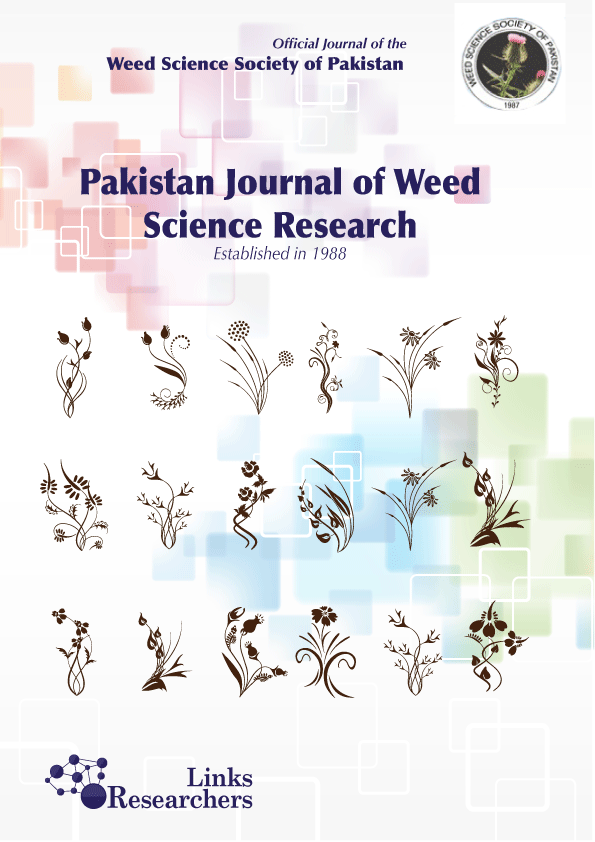INHIBITORY IMPACT OF WHITE CEDAR (Melia azedarache)LEAVES LITTER ON WHEAT (Triticum aestivum) SEEDLINGS
INHIBITORY IMPACT OF WHITE CEDAR (Melia azedarache)LEAVES LITTER ON WHEAT (Triticum aestivum) SEEDLINGS
Iqtidar Hussain1, Ejaz Ahmed Khan1, Jawad Nazir and Ehtesham-ul-Haq1
ABSTRACT
A biological phenomenon by which one plant releases some chemicals in the environment that affect the rate of germination, seedling emergence, physiology and overall growth of neighbouring plants is called allelopathy. The significance of study was checked allelopathic phytochemical potential of white cedar vern. Bakain (Melia azedarachL.) leaves on wheat.Leaveslitter was used to examine the allelopathic effects of M.azedarach at five concentrations (100, 200, 300, 400 g, control). The studied parameters were germination percentage (%), Speed of germination, plant height (cm), root length (cm), Shoot length (cm), coleoptile length (cm), fresh weight (g), dry weight (g), tiller (plant-1) and chlorophyll content (μg cm-2) of Triticum aestivum.All concentration of Leaves litterof M. azedarachshowed pronounced inhibitory effect on all parameters of T. aestivum. M. azedarach exerted phytotoxic influence on T. aestivum at initial growth stages. M.azedarachexhibited a significant negative impact on germination of T. aestivumat100, 200, 300, 400 glitterof leaves than control (sterilized soil).M. azedarachhalted the coleoptilelength of T. aestivum@ 400 gleaves litter-1 (T4). Powdered leavesof M. azedarachin clay loam soil appeared to have strong allelopathic inhibition under maximum concentrations on growth and germination ofT. aestivum.Hence, M.azedarach proved to be a strong allelopathic plant that should be planted aside from field to avoid harmful impacts during early growth stages of T. aestivum.
To share on other social networks, click on any share button. What are these?





